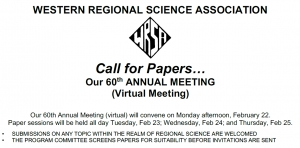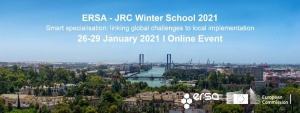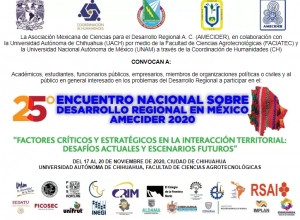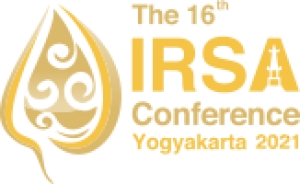
Department of Geography and Earth Sciences
9201 University City Boulevard, Charlotte, NC 28223-0001
Phone: 704-687-5973
Position Number 6899 - Assistant Professor in Environmental Planning
Position Number 6908 - Assistant Professor in Urban and Community Planning
Department of Geography and Earth Sciences University of North Carolina at Charlotte
The Department of Geography and Earth Sciences and the College of Liberal Arts and Sciences at the University of North Carolina at Charlotte invite applications for two tenure-track appointments at the rank of Assistant Professor. In an effort to bridge urban and environmental strengths across the Department and in support of a social justice initiative across the College of Liberal Arts and Sciences, these positions contribute to our Department’s urban planning programs. Both positions will begin on August 12, 2021.
The first position is in the area of Environmental Planning. We are seeking a dynamic and broadly trained scholar with expertise in areas such as environmental justice, environmental governance, environmental assessment, lifecycle assessment, low-carbon lifestyles, climate change adaptation, resilience, socio-ecological systems, and/or urban sustainability. We welcome candidates who have an urban focus and who will complement one or more methodological areas of expertise in the Department. Preference will be given to candidates whose work involves the use of both quantitative and qualitative methods (e.g., mixed methods) as well as geospatial approaches, and examines planning issues through an equity lens using a community engagement component. We would be excited to see applications from candidates who use innovative approaches in their research, including but not limited to research co-design, citizen science, and experimental survey design.
The second position is in the area of Urban and Community Planning. We are seeking a dynamic and broadly trained planner with expertise in the built environment, urban development, social justice, community resilience, human-environment relationships, and/or socio-ecological systems. Geographic and topical areas of research are open, with preference given to individuals who will complement one or more methodological áreas of expertise in our department such as community-engaged action research, community mapping, mixed-methods, and/or qualitative methods.
Requirements for these positions include a PhD in Geography, Planning, or a related field in hand by the time of appointment, evidence of scholarly productivity, an ability to secure appropriate external funding, and the potential for engaging students in a diverse academic environment. The candidate should also show evidence of interdisciplinary collaboration and attention to equity issues in their teaching and research.
Candidates should demonstrate the ability to contribute to the department’s undergraduate and graduate curriculum, build a successful, cutting-edge research program, and develop coursework in their area of expertise. The department is particularly interested in candidates who have experience working with students from diverse backgrounds and demonstrated commitment to improving access to higher education for all students, along with an interest in promoting diversity in their research, teaching, and service. The teaching load for new faculty is two courses per semester in the pre-tenure period.
The Department of Geography and Earth Sciences (http://www.geoearth.uncc.edu/) is a diverse community of 33 social and physical scientists, nearly 700 undergraduate majors, and 90 graduate students from a variety of disciplinary backgrounds. The Department’s mission is to create and disseminate scientific knowledge about the social and natural systems of the Earth and their interactions through scholarly research, teaching, and service. The Department is committed to rigorous high-level research and excellence in teaching. The Department offers undergraduate degrees in Geography (BA/BS), Earth and Environmental Sciences (BS), Geology (BS), Environmental Studies (BA), and Meteorology (BS). At the graduate level, the Department offers an MA and a PhD in Geography, an MS in Earth Sciences, and a graduate certificate in Geographic Information Science & Technology. In addition, the department is a core participant in several interdisciplinary graduate programs on campus, including PhD programs in Public Policy (PPOL) and Infrastructure and Environmental Systems (INES), and the Master’s in Urban Design (MUD).
UNC Charlotte is a rapidly growing doctoral-granting urban university located in the largest metropolitan area between Washington, DC and Atlanta. The University is a Carnegie Foundation Community Engagement campus. Over 30,000 culturally diverse students are enrolled at the University. As the largest college at UNC Charlotte, the College of Liberal Arts and Sciences houses 20 departments in the humanities, social and behavioral sciences, natural sciences, and military sciences, as well as 25 applied research centers and interdisciplinary programs. It offers eight doctoral degrees, 24 master's degrees, 12 graduate certificates, and 32 undergraduate degrees.
Candidates should submit the following to https://jobs.uncc.edu [Environmental Planning Position Number 6899; Community and Urban Planning Position Number 6908]: (1) a letter of application responding to the required and desired qualifications listed above, including a diversity, equity, and inclusion statement; (2) a statement of current and future research; (3) a teaching statement including teaching philosophy, agenda, and evidence of teaching effectiveness; (4) a curriculum vitae; (5) one to three representative publications; and (6) contact information (including email addresses) for at least three professional references. We ask applicants to reflect on how they integrate issues surrounding diversity into their teaching, research and/or services.
Review of applications will begin on January 4, 2020 and will continue until the position is filled. For more information, contact: Environmental Planning Position- Dr. Isabelle Nilsson (This email address is being protected from spambots. You need JavaScript enabled to view it.) or Dr. Sara Gagné (This email address is being protected from spambots. You need JavaScript enabled to view it.); Community and Urban Planning position – Dr. Elizabeth Delmelle (This email address is being protected from spambots. You need JavaScript enabled to view it.).
As an EOE/AA employer and an ADVANCE Institution that strives to create an academic climate in which the dignity of all individuals is respected and maintained, the University of North Carolina at Charlotte encourages applications from all underrepresented groups. UNC Charlotte is an affirmative action, equal opportunity employer and is committed to achieving excellence through cultural diversity. The university actively encourages applications and/or nominations of women, persons of color, veterans, and persons with disabilities.
The candidate chosen for this position will be required to provide an official transcript of their highest earned degree and submit to a criminal background check.



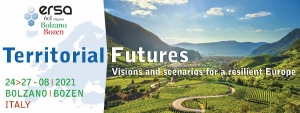
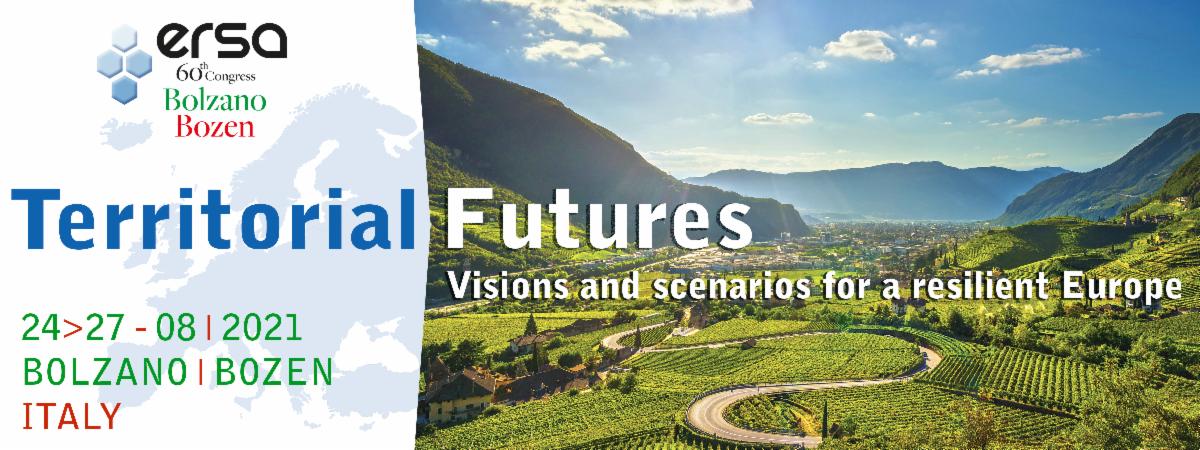
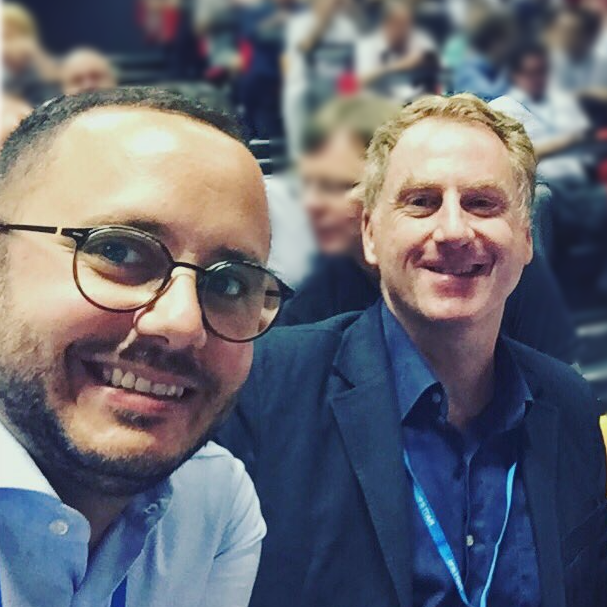 The COVID pandemic has changed the world. Europe is now experiencing several challenges which have significant impacts on the resilience of society and territories. Regional Science can provide valuable answers.
The COVID pandemic has changed the world. Europe is now experiencing several challenges which have significant impacts on the resilience of society and territories. Regional Science can provide valuable answers.

